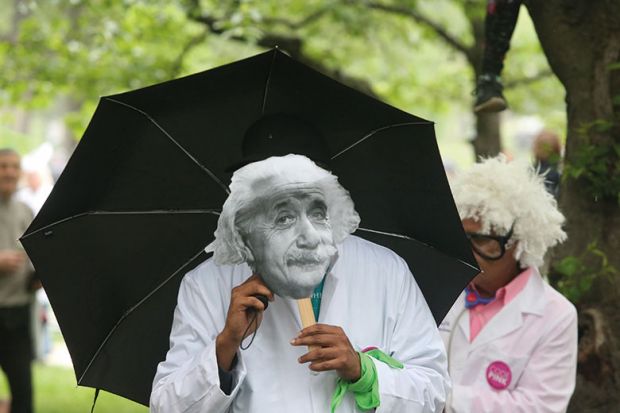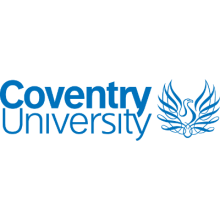Essay mills should be made illegal and the punishments for students who use them must be harsher, according to academics surveyed by Times Higher Education, following publication of a new journal paper that finds “surprising” levels of support among university staff “for the criminalising of student use of these services”.
The THE survey – based on a self-selecting group of 230 respondents – found 84 per cent believe that essay mills should be illegal. It also found that a significant minority – 41 per cent – believe that students should be criminalised for using such services.
According to one Australian respondent, the scale of contract cheating “is vast, and if we believe otherwise we are kidding ourselves. Any solution that doesn’t place onus back on students as well as contractors is doomed to failure.”
The survey follows a recently published paper by Phil Newton, director of learning and teaching at Swansea University Medical School, and Rebecca Awdry, a PhD student at the Centre for Research in Assessment and Digital Learning at Deakin University in Australia, which analysed a survey of 196 respondents in Australian and UK universities and found that there was “modest, qualified support for the criminalising of student use of these services”. Nearly 50 per cent of those surveyed “strongly agreed” with the idea of criminalising the behaviour of students who engage in contract cheating, the paper reported. However, the authors say that many of these respondents subsequently backtracked on this tough stance later in the survey.
The results of both surveys demonstrate an increasing frustration within academia over the issue of contract cheating. THE’s survey showed that 70 per cent of respondents have suspected one of their students of using contract cheating services, while 63 per cent said that a student of theirs had been proved to have cheated in this way. A 2018 paper by Professor Newton found that it was likely that as many as one in seven recent graduates has used contract cheating services.
Both Professor Newton and Ms Awdry said that they were “surprised” by the number of participants to their survey, carried out in 2016, who indicated support for criminalising students who use commercial contract cheating services. Ms Awdry said that the use of contract cheating can often relate to external pressures placed on young people. “Universities need to continue to be proactive educators. As such, there is more work that can be done to deter this without criminalising these behaviours against students,” she said.
In 2017, the UK’s Department for Education said that it was consulting on a range of options to tackle essay mills in England, including criminalising students, and asked the Quality Assurance Agency to develop them.
The QAA has since convened a working group on academic integrity and Gareth Crossman, the agency's head of policy and public affairs, told THE that it has put together a series of proposals that would require legislation from the government. However, Mr Crossman added that the work had focused on criminalising the operators of essay mills, not the students.
A DfE spokesman said that “universities should also be taking steps to tackle this issue, by investing in detection software and educating students on the severe consequences they face if caught cheating”.
He added that the DfE has “not ruled out bringing forward further legislation to outlaw contract cheating services and essay mills”.
One respondent, who has worked in a “plagiarism office” at an English university, told THE that criminalising students was “the way forward. There are students who for whatever reason prefer to outsource their work to others. For me this is fraud, as this is passing off the intellectual property of another as your own, and doing so results in fraudulently getting a degree that you are not entitled to,” she said.
But the sticking point for many academics is the university’s duty of care towards students and how criminalisation could affect them in later life.
Irene Glendinning, academic manager for student experience at Coventry University, said that she was “seriously opposed” to any legislation on the subject that would result in students having a criminal record. “Our job is to educate students and to help them to get back on track if they stray,” she said. However, she added that universities “should not be afraid to suspend or expel students, as long as we can show they were aware what the consequences would be”.
Others told the THE survey that making essay mills illegal would have a sufficiently deterrent effect on students. “[Criminalising students] would be limited in efficacy in the sense of convictions reducing the number of offenders,” according to an academic at an English university. “But the law holds a moral weight that will make students think twice about using these services to pass a course.”
Cath Ellis, associate dean (education) at Australia’s University of New South Wales, who has researched student and staff views on contract cheating, said that “the students ordering the work, the writers doing the work and the company owners are all probably better able to convince themselves that they are not doing anything wrong because it is not a crime. That’s absolutely a huge problem.”
However, she added that one inevitable consequence of criminalising student behaviour would be a reduction in reported cases. If academics feel that referring potential cheating cases might give a student a criminal record, they are likely to be hesitant to push forward, she said. “This is the opposite of what we want.”
Globally the legal picture is mixed: New Zealand, Ireland and some states in the US have taken steps to make essay mills illegal, whereas in the UK, efforts to tackle essay mills have – as yet – not led to legislation.
anna.mckie@timeshighereducation.com
THE survey respondents on contract cheating
“Many institutions are in denial about this problem, or so naive that they are only looking for old-fashioned plagiarism” – UK lecturer
“I chair my department’s academic misconduct panel and think contract cheating is extremely difficult to catch” – UK senior academic
“The fact that these services can advertise on the internet and are easy to find has normalised them. Students are now less clear about what is or is not allowed than they were 20 years ago” – lecturer at a continental European university
“It needs to be dealt with with much more rigour than is presently the case and students need to know that it won’t be tolerated and that sanctions will be applied” – Australian head of department
“Criminalising this behaviour would be insane. However, granting degrees to cheaters devalues degrees. Expulsion is a bad enough consequence, but you have to enforce it every time” – US lecturer
“With the monetisation of higher education, institutions increasingly take fees from students who don’t have a reasonable prospect of completing the degree, and see international students in particular as cash cows. To a certain extent, this profit-driven culture almost encourages students to find ways to cheat in order to make their considerable investment worthwhile” – UK teaching fellow
“Course assessment should be designed in a way that essay mills are of no use to students (for example, use of supervised exams, in-class presentations, short turnaround on take-home exams)” – senior lecturer at a continental European university.
POSTSCRIPT:
Print headline: Should students who use essay mills be criminalised?
Register to continue
Why register?
- Registration is free and only takes a moment
- Once registered, you can read 3 articles a month
- Sign up for our newsletter
Subscribe
Or subscribe for unlimited access to:
- Unlimited access to news, views, insights & reviews
- Digital editions
- Digital access to THE’s university and college rankings analysis
Already registered or a current subscriber?











